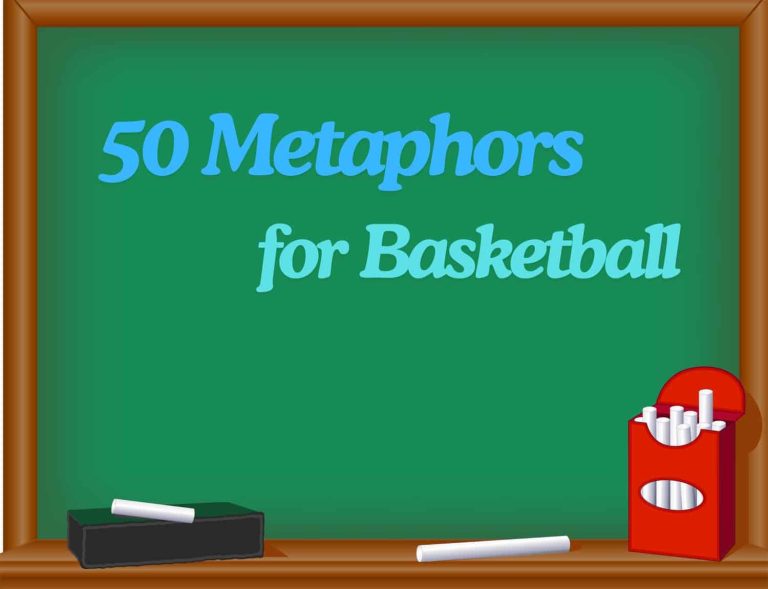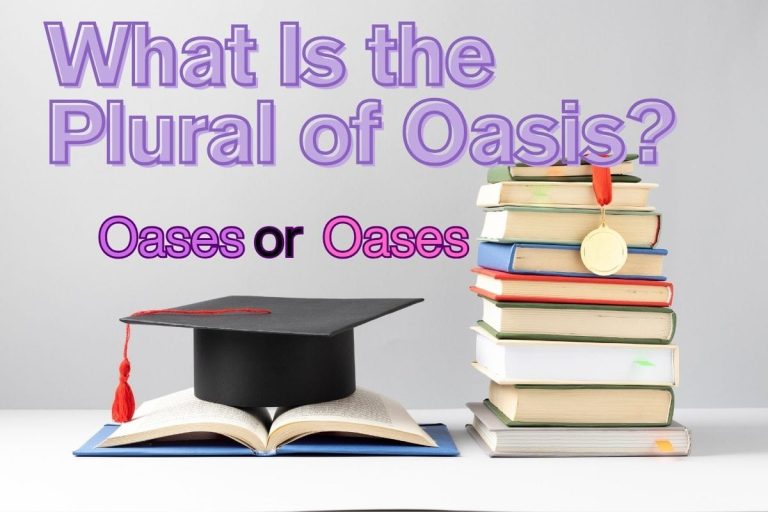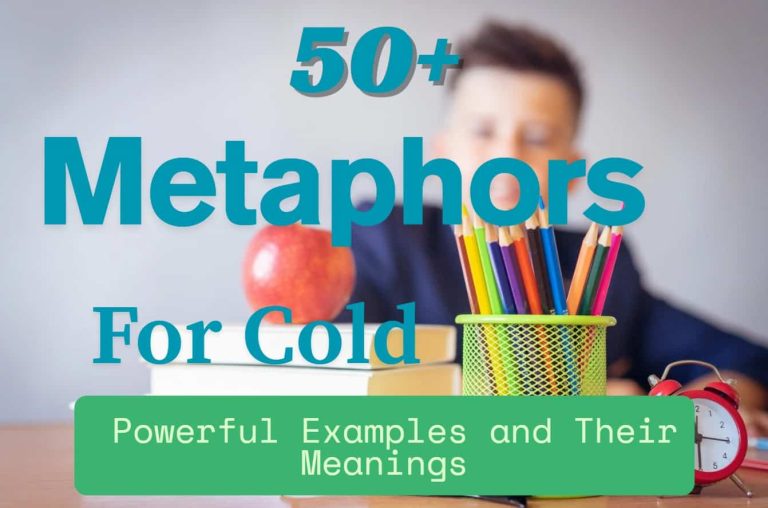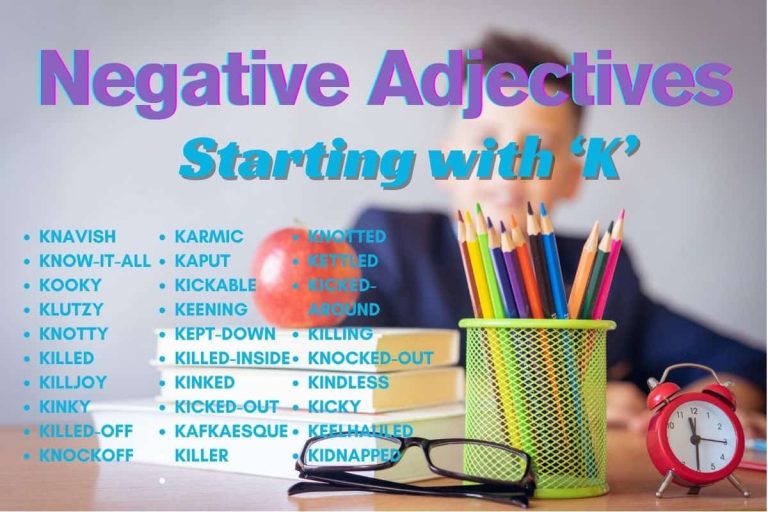Adjectives That Start With “H”: A Complete List + Examples
Looking to add more color and clarity to your descriptions? Then it’s time to explore some powerful adjectives that start with “H.” This letter might seem humble, but it holds a treasure trove of expressive words that can bring your language to life. Whether you’re talking about someone’s helpful nature, a hectic day, or a heartwarming story, “H” adjectives give you the tools to say it just right.
These words come in all shades — positive, negative, emotional, and descriptive — making them incredibly versatile for writing, conversation, or creative projects. They help you capture moods, paint personalities, and shape vivid scenes with just the right touch.
In this post, we’ve rounded up a wide range of adjectives beginning with “H,” complete with definitions and examples. So whether you’re growing your vocabulary or just love playing with words, there’s something here for you!
Adjectives Starting with “H”
An adjective is a word that modifies a noun or pronoun, providing additional information about its qualities, characteristics, or state. Adjectives starting with the letter “H” function in the same way, adding detail and specificity to the nouns they describe.
Classification: Adjectives can be classified based on their function:
- Descriptive Adjectives: Describe the qualities or characteristics of a noun (e.g., happy, huge).
- Quantitative Adjectives: Indicate the quantity or amount of a noun (e.g., half, hundred).
- Possessive Adjectives: Show ownership or possession (e.g., his, her – although technically pronouns acting adjectivally).
- Demonstrative Adjectives: Point out specific nouns (e.g., this, that – can also be pronouns).
- Interrogative Adjectives: Used to ask questions about nouns (e.g., which, whose – can also be pronouns).
Function: Adjectives enhance the clarity and vividness of language by providing descriptive details. They can evoke emotions, paint pictures, and add depth to writing and speech. For instance, instead of saying “a house,” using the adjective “humble” creates a more specific image: “a humble house.”
Contexts: “H” adjectives are used in various contexts, including:
- Literature: To create imagery and develop characters.
- Journalism: To provide accurate and descriptive reporting.
- Everyday Conversation: To communicate effectively and express opinions.
- Academic Writing: To provide detailed descriptions and analysis.
Structural Breakdown:
The structure of adjectives starting with “H” is similar to that of other adjectives in English. They typically precede the noun they modify, but they can also follow a linking verb (e.g., is, are, was, were) to describe the subject of the sentence. The basic structure is:
Adjective + Noun: happy child, huge building, honest mistake
Subject + Linking Verb + Adjective: The child is happy, The building is huge, The mistake was honest.
Adjectives can also be modified by adverbs to increase their intensity or specify their degree:
Adverb + Adjective + Noun: very happy child, incredibly huge building, completely honest mistake
Understanding these structural patterns helps in constructing grammatically correct and descriptive sentences.
Types and Categories of “H” Adjectives
Adjectives starting with “H” can be categorized based on their specific functions and the type of information they provide. Here’s a breakdown of some common categories:
Descriptive Adjectives
Descriptive adjectives provide details about the qualities or characteristics of a noun. They answer the question “What kind?” or “Which one?” Examples include:
- Happy: Expressing joy or contentment.
- Huge: Extremely large.
- Honest: Truthful and sincere.
- Humble: Modest and unassuming.
- Harmonious: Pleasing or agreeable to the ear or eye.
Quantitative Adjectives
Quantitative adjectives indicate the quantity or amount of a noun. They answer the question “How much?” or “How many?” Examples include:
- Half: One of two equal parts.
- Hundred: A number equal to ten times ten.
Possessive Adjectives
Possessive adjectives show ownership or possession. They indicate to whom or to what something belongs.
Examples include:
- His: Belonging to him.
- Her: Belonging to her.
Demonstrative Adjectives
Demonstrative adjectives point out specific nouns. They indicate which noun is being referred to.
Examples include:
- This: Referring to something nearby or present.
- That: Referring to something farther away or absent.
Interrogative Adjectives
Interrogative adjectives are used to ask questions about nouns. Examples include:
- Which: Asking about a specific choice or option.
- Whose: Asking about ownership or possession.
Adjectives That Start With “H” + Examples
Positive Connotations
These adjectives evoke positive feelings and descriptions. The following table provides a list of “H” adjectives with positive connotations, along with example sentences to illustrate their usage.
| Adjective | Definition | Example Sentence |
|---|---|---|
| Happy | Feeling or showing pleasure or contentment. | The happy children played in the park. |
| Healthy | In good health; not suffering from any disease or injury. | A healthy diet is essential for well-being. |
| Helpful | Giving or ready to give help. | She is a helpful colleague who always assists others. |
| Honest | Free of deceit; truthful and sincere. | He is an honest man of integrity. |
| Honorable | Deserving of respect or high regard. | It was an honorable decision to resign. |
| Hopeful | Feeling or inspiring optimism about a future event. | We are hopeful that the situation will improve. |
| Hospitable | Friendly and welcoming to guests or strangers. | They are hospitable hosts who make everyone feel at home. |
| Heavenly | Resembling or befitting heaven; supremely delightful. | The dessert tasted heavenly. |
| Heroic | Having the characteristics of a hero; very brave. | The firefighter performed a heroic rescue. |
| High-spirited | Lively and cheerful. | The high-spirited team celebrated their victory. |
| Holy | Dedicated or consecrated to God or a religious purpose. | This is a holy place of worship. |
| Homey | Having a comfortable and familiar atmosphere. | The restaurant has a homey feel. |
| Humorous | Causing amusement; funny. | He told a humorous anecdote that made everyone laugh. |
| Heartwarming | Emotionally moving and positive. | It was a heartwarming story of friendship. |
| Halcyon | Denoting a period of time in the past that was idyllically happy and peaceful. | She remembered the halcyon days of her youth. |
| Handy | Convenient to handle or use; useful. | A handy tool for DIY projects. |
| Hardy | Robust; capable of enduring difficult conditions. | The hardy plants survived the winter. |
| Harmless | Not able or likely to cause harm. | The spider is harmless to humans. |
| Healing | Tending to restore health. | The doctor provided healing treatments. |
| Heady | Potent; having a strong effect. Also, exhilarating. | The wine had a heady aroma. |
| Hugely | Extremely; immensely. | The project was hugely successful. |
| Humanitarian | Concerned with or seeking to promote human welfare. | The organization provides humanitarian aid. |
| Hygienic | Conducive to maintaining health and preventing disease, especially by being clean. | Maintaining hygienic conditions is crucial in hospitals. |
| Heightened | Made more intense or acute. | Her senses were heightened by the experience. |
| Heirloom | Of special value as having been passed down from one generation to another. | The antique ring was an heirloom passed down through generations. |
| Highly-regarded | Admired or respected by many people. | The professor was a highly-regarded expert in his field. |
Negative Connotations
These adjectives evoke negative feelings and descriptions. The following table provides a list of “H” adjectives with negative connotations, along with example sentences to illustrate their usage.
| Adjective | Definition | Example Sentence |
|---|---|---|
| Harmful | Causing or capable of causing harm. | Smoking is harmful to your health. |
| Hateful | Expressing or causing hate. | His speech was filled with hateful rhetoric. |
| Hideous | Extremely ugly or unpleasant. | The building was a hideous eyesore. |
| Horrible | Extremely unpleasant or bad. | The weather was horrible today. |
| Hostile | Unfriendly; antagonistic. | The atmosphere was hostile and tense. |
| Humiliating | Causing someone to feel ashamed and foolish. | It was a humiliating defeat. |
| Harrowing | Acutely distressing. | The survivors recounted their harrowing experiences. |
| Haughty | Arrogantly superior and disdainful. | The haughty nobleman looked down on the peasants. |
| Hazardous | Risky; dangerous. | The chemicals are hazardous to handle without protection. |
| Heartless | Lacking compassion or feeling. | His heartless actions shocked everyone. |
| Heinous | Utterly odious or wicked. | The crime was heinous and unforgivable. |
| Hesitant | Tentative; unsure. | She was hesitant to accept the offer. |
| Hidden | Kept out of sight; concealed. | There was a hidden danger lurking in the shadows. |
| Hindering | Creating difficulties for someone or something, resulting in delay or obstruction. | The heavy rain was hindering our progress. |
| Hollow | Having a hole or empty space inside. | The tree trunk was hollow. |
| Hopeless | Feeling or causing despair about the possibility of finding a solution or remedy. | The situation seemed hopeless. |
| Humdrum | Lacking excitement or variety; dull; monotonous. | Life in the small town was humdrum. |
| Hungry | Feeling or displaying the need for food. | The hungry wolves stalked their prey. |
| Hurried | Done in a rush. | The hurried meal left him feeling unsatisfied. |
| Hypercritical | Excessively and unreasonably critical, especially of small faults. | The hypercritical boss made the employees nervous. |
| Hysterical | Affected by or deriving from wildly uncontrolled emotion. | She became hysterical after the accident. |
| Hampering | Hindering or impeding the progress or movement of. | The thick fog was hampering visibility. |
| Haphazard | Lacking any obvious principle of organization. | The arrangement was haphazard and disorganized. |
| Haunting | Difficult to ignore or forget; troubling. | The melody was haunting and unforgettable. |
| Heedless | Showing a reckless lack of care or attention. | The heedless driver caused an accident. |
Neutral Connotations
These adjectives have neither positive nor negative associations. The following table provides a list of “H” adjectives with neutral connotations, along with example sentences to illustrate their usage.
| Adjective | Definition | Example Sentence |
|---|---|---|
| Historical | Relating to the past or to history. | The museum has a collection of historical artifacts. |
| Human | Relating to or characteristic of people. | We all make human mistakes. |
| Heavy | Of great weight. | The box was too heavy to lift. |
| High | Extending far upwards. | The mountain is very high. |
| Horizontal | Parallel to the ground or base. | The line is horizontal. |
| Hot | Having a high degree of heat. | The coffee is too hot to drink. |
| Half | One of two equal parts. | I ate half the pizza. |
| Hundred | The number 100. | There were a hundred people at the concert. |
| Handmade | Made by hand, not by machine. | The pottery was handmade. |
| Hard | Solid, firm, and rigid; not easily broken or deformed. | The rock was hard and unyielding. |
| Having | Possessing or holding something. | The person having the tickets may enter. |
| Hereditary | (of qualities or illnesses) passed on from parents to their child. | The disease is hereditary. |
| Hierarchical | Arranged in order of rank. | The organization has a hierarchical structure. |
| Holistic | Relating to the whole of something. | We need a holistic approach to healthcare. |
| Homeless | Without a home. | The charity helps homeless people. |
| Homogeneous | Of the same kind; alike. | The group was homogeneous in terms of age. |
| Hourly | Done or occurring every hour. | The bus service is hourly. |
| Hybrid | Of mixed character; composed of two or more elements. | The car is a hybrid model. |
| Hydraulic | Operated by a liquid moving in a confined space under pressure. | The machine uses a hydraulic system. |
| Hypersonic | Relating to speeds of more than five times the speed of sound. | The aircraft is capable of hypersonic flight. |
| Habitable | Suitable to live in. | The planet was found to be habitable. |
| Hemispheric | Relating to a hemisphere (half of a sphere). | The study focused on hemispheric differences. |
| Herbal | Relating to or made from herbs. | She prefers herbal remedies. |
| Hidden | Kept out of sight; concealed. | The treasure was in a hidden location. |
Usage Rules for “H” Adjectives
Using “H” adjectives correctly involves understanding their placement, forms, and functions within sentences. Here are some key usage rules:
Adjective Order
When using multiple adjectives to describe a noun, follow a general order:
- Opinion
- Size
- Age
- Shape
- Color
- Origin
- Material
- Purpose
For example: “a beautiful (opinion) large (size) old (age) round (shape) red (color) Italian (origin) wooden (material) table.” While not all categories will be used at once, adhering to this order makes sentences sound more natural.
Comparative and Superlative Forms
Most adjectives have comparative and superlative forms to indicate degrees of comparison. For most one-syllable “H” adjectives, add “-er” for the comparative and “-est” for the superlative.
- High: Higher, Highest
- Hard: Harder, Hardest
For longer adjectives, use “more” and “most”:
- Harmful: More harmful, Most harmful
- Helpful: More helpful, Most helpful
Adjective Phrases
Adjectives can be part of larger phrases that modify nouns. These phrases can add more detail and complexity to descriptions.
- “The happy as can be child played with toys.”
- “The huge, imposing building dominated the skyline.”
- “The honest to a fault man always told the truth.”
Common Mistakes with “H” Adjectives
Even proficient English speakers sometimes make mistakes with adjectives. Here are some common errors to avoid:
| Incorrect | Correct | Explanation |
|---|---|---|
| “The most happiest day of my life.” | “The happiest day of my life.” | Avoid using “most” with adjectives that already have a superlative form. |
| “A very harmfulest substance.” | “A very harmful substance.” | Do not use “-est” with adjectives that use “most” for their superlative form. |
| “He is more honestest than her.” | “He is more honest than her.” | Avoid double comparatives (using both “more” and “-er”). |
| “The heavyest box.” | “The heaviest box.” | Be careful with spelling changes when forming comparatives and superlatives. |
Practice Exercises
Test your understanding of “H” adjectives with these exercises.
Exercise 1: Fill in the Blanks
Choose the correct “H” adjective to complete each sentence.
| Question | Answer |
|---|---|
| 1. She is a very _______ person who always tries to help others. (helpful, harmful) | helpful |
| 2. The _______ mountains provided a stunning backdrop to the valley. (high, hollow) | high |
| 3. It was a _______ decision to donate to the charity. (honorable, horrible) | honorable |
| 4. The _______ chemicals need to be handled with care. (hazardous, harmless) | hazardous |
| 5. We need to take a _______ approach to solving this problem. (holistic, hollow) | holistic |
| 6. The old tree had a _______ trunk. (hollow, high) | hollow |
| 7. The _______ painting was very valuable. (handmade, historical) | handmade |
| 8. The _______ news shocked everyone. (horrible, honorable) | horrible |
| 9. The _______ child was full of joy. (happy, harmful) | happy |
| 10. The _______ diet is important for a long life. (healthy, hateful) | healthy |
Identify the “H” adjective in each sentence.
| Question | Answer |
|---|---|
| 1. The historical artifacts were displayed in the museum. | historical |
| 2. The humble farmer lived a simple life. | humble |
| 3. The heavy rain flooded the streets. | heavy |
| 4. The hostile environment made it difficult to work. | hostile |
| 5. The handmade crafts were sold at the fair. | handmade |
| 6. The helpful guide showed us the way. | helpful |
| 7. The hazardous waste needs to be disposed of carefully. | hazardous |
| 8. The hollow tree provided shelter for the animals. | hollow |
| 9. The honest merchant always gave fair prices. | honest |
| 10. The harmonious blend of colors created a beautiful painting. | harmonious |
Correct the sentences with errors in adjective usage.
| Question | Answer |
|---|---|
| 1. This is the most happiest moment of my life. | This is the happiest moment of my life. |
| 2. The harmfulest chemicals need to be handled carefully. | The most harmful chemicals need to be handled carefully. |
| 3. He is more honestest than anyone I know. | He is more honest than anyone I know. |
| 4. The heavyest box was difficult to carry. | The heaviest box was difficult to carry. |
| 5. She gave a very heartfeltest speech. | She gave a very heartfelt speech. |
| 6. That was a more horrible experience than I ever imagined. | That was a more horrible experience than I ever imagined. (Correct – No Change Needed) |
| 7. The high mountain is very dangerous to climb. | The high mountain is very dangerous to climb. (Correct – No Change Needed) |
| 8. A helpfulest friend is hard to find. | A most helpful friend is hard to find. |
| 9. The honestest policy is always the best. | The most honest policy is always the best. |
| 10. The hollowest tree provided the most shelter. | The hollowest tree provided the most shelter. (Correct – No Change Needed) |
Advanced Topics
For advanced learners, here are some more complex aspects of using adjectives starting with “H”:
Hyphenated Adjectives
Hyphenated adjectives are formed when two or more words are combined to act as a single adjective before a noun. Examples include:
- High-spirited: A high-spirited child.
- Hard-working: A hard-working employee.
Hyphenated adjectives are generally used before the noun. If they come after a linking verb, they are not hyphenated: “The employee is hard working.”
Adjectives Used as Nouns
In some cases, adjectives can be used as nouns, especially when referring to a general group of people or things.
- “The homeless need our help.” (Homeless refers to homeless people.)
- “The healthy are often unaware of the struggles of the sick.” (Healthy refers to healthy people.)
Frequently Asked Questions (FAQ)
- What is the correct order of adjectives when using multiple adjectives?
The general order is: Opinion, Size, Age, Shape, Color, Origin, Material, Purpose. - How do I form the comparative and superlative of “H” adjectives?
For most one-syllable adjectives, add “-er” and “-est.” For longer adjectives, use “more” and “most.” - Can adjectives starting with “H” be used after linking verbs?
Yes, adjectives can follow linking verbs like is, are, was, and were to describe the subject of the sentence. - What are some common mistakes to avoid when using “H” adjectives?
Avoid double comparatives (e.g., “more honestest”) and using “most” with adjectives that already have a superlative form (e.g., “most happiest”). - What are hyphenated adjectives, and how are they used?
Hyphenated adjectives are combinations of two or more words acting as a single adjective. They are typically used before a noun. - Can adjectives be used as nouns?
Yes, in some cases, adjectives can be used as nouns, especially when referring to a general group of people or things. - What’s the difference between ‘historic’ and ‘historical’?
‘Historic’ refers to something important in history. ‘Historical’ simply relates to the past. For example, “a historic battle” vs. “historical documents.” - How can I expand my vocabulary of adjectives that start with the letter “H”?
Read widely, use a thesaurus, and practice using new adjectives in your writing and speaking. Pay attention to how native speakers use these words in context.
Conclusion
Remember to practice using these adjectives in various contexts to solidify your understanding. Continue to expand your vocabulary and pay attention to the nuances of language use to become a more confident and skilled communicator.





